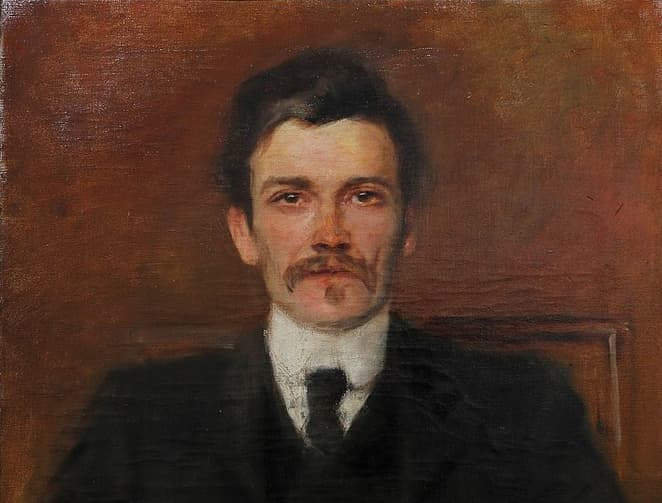Poem of the Day: ‘The Curse’
A nice example of a kind of poetry that inverts incantation to comedy.

About John Millington Synge (1871–1909), what are we to say? I suppose that he was a minor figure in the Celtic literary revival around the turn of the century, an occasional poet, and a nearly forgotten playwright who produced a good one-act play, “Riders to the Sea,” in 1904. But then there’s “The Playboy of the Western World,” his play that opened at the Abbey Theatre in Dublin in 1907. Without the riots that followed, would we much remember Synge?
Possibly. Seán O’Casey’s 1926 play “The Plough and the Stars” was also the cause of Irish riots — mainly because he took the words of a national martyr (Patrick Pearse, who died in the 1916 Easter uprising) and put them in the mouth of an Irish prostitute: “Bloodshed is a cleansing and a sanctifying thing, and the nation that regards it as the final horror has lost its manhood.” And O’Casey is nonetheless remembered for more than deliberately provoking the Dublin mob. So perhaps the reputation of Synge, too, could transcend his riots.
Unfortunately, Synge died young, 38 years old, of Hodgkin’s Disease, two years after the opening of “The Playboy of the Western World.” It wasn’t long enough to reestablish either his reputation or his own equanimity of mind. A member of the Anglo-Irish Protestant upper class, he took as the topic of his literary and anthropological folklore studies the Catholic working class of Ireland, especially the rural populations. And when the Irish turned on him he felt betrayed.
But one fruit of his anger is today’s Poem of the Day, a comically overwrought response to a missive from the “sister of an enemy of the author’s,” a woman “who disapproved of ‘The Playboy,’” accusing him, as many did, of insulting Ireland and the purity of its women. “Lord, confound this surly sister, / Blight her brow with blotch and blister,” he answered. The Poem of the Day on Wednesdays is typically lighter verse — and Synge’s “The Curse” stands as a nice example of a kind of poetry that inverts incantation to comedy.
The Curse [To a sister of an enemy of the author’s who disapproved of “The Playboy”]
by John Millington Synge
Lord, confound this surly sister,
Blight her brow with blotch and blister,
Cramp her larynx, lung, and liver,
In her guts a galling give her.
Let her live to earn her dinners
In Mountjoy with seedy sinners:
Lord, this judgment quickly bring,
And I’m your servant, J. M. Synge.
___________________________________________
With “Poem of the Day,” The New York Sun offers a daily portion of verse selected by Joseph Bottum with the help of the North Carolina poet Sally Thomas, the Sun’s associate poetry editor. Tied to the day, or the season, or just individual taste, the poems will be typically drawn from the lesser-known portion of the history of English verse. In the coming months we will be reaching out to contemporary poets for examples of current, primarily formalist work, to show that poetry can still serve as a delight to the ear, an instruction to the mind, and a tonic for the soul.
